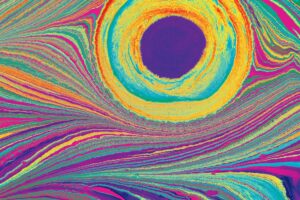—
The realm of mental health treatment has witnessed significant developments throughout the centuries. While conventional therapies such as prescription drugs and individual counseling continue to dominate this field, a new strategy is gradually gaining critical attention: the therapeutic application of psychedelics. This article explores the remarkable therapeutic potential of psychedelics, with a central focus on their role in healing emotional distress and managing psychological disorders.
Psychedelics, substances known for their mind-altering effects, were traditionally connected with spiritual and cultural practices. In the modern era, the application of these substances has transitioned towards psychotherapy. Within therapy, psychedelics such as psilocybin (found in magic mushrooms), LSD, and MDMA, have demonstrated profound therapeutic benefits.
A momentous shift in the understanding of psychedelics arose from preliminary clinical studies conducted over the past two decades. These trials, predominantly focusing on psilocybin and MDMA, indicate that psychedelic substances can be employed safely and effectively in a therapeutic context. Importantly, patients participating in these studies reported significant improvements in mental health, specifically for conditions notoriously resistant to conventional treatments, such as depression, chronic anxiety, and PTSD.
In psychedelic-assisted therapy, a patient, under the guidance of a trained mental health professional, is administered a controlled dose of a psychedelic substance to facilitate the therapeutic process. This procedure often leads the patient to a heightened state of mindfulness and emotional openness, allowing them to engage more fully with their inner experiences.
The potency of psychedelics in therapy owes partially to their unique neurobiological effects. Research has shown that psychedelics can spur significant changes in brain activity, increasing neural connectivity and stimulating brain regions linked with emotion and memory. This neural remodeling can help patients reframe distressing experiences and encourage healthier thought patterns.
Psychedelics also promote an increased state of mindfulness — a mental state in which one becomes thoroughly aware of their moment-to-moment experiences. This heightened consciousness helps patients confront and address psychological pain, often leading to significant healing. Furthermore, this introspective journey can result in durable improvements in mindfulness, fostering resilience against future mental health challenges.
Of course, the application of psychedelics in therapy isn’t without its challenges. For example, the taboo and regulatory limitations associated with these substances can pose potential roadblocks. However, rigorous scientific study and responsible therapeutic use can help shift public opinion, paving the way for broader acceptance and utilization of psychedelics in mental health therapy.
Psychedelic-assisted psychotherapy might be relatively new terrain in mental health treatment, but its promise is undeniable. The last decade has seen growing interest from researchers, mental health professionals, and policy-makers in the therapeutic potential of psychedelics. This increased attention, coupled with promising clinical results, underscores the momentum building behind psychedelics as a viable treatment option for a variety of psychological disorders.
Taken together, it’s clear that the therapeutic potential of psychedelics is vast. With advancements in clinical studies and a growing understanding of their neurobiological effects, psychedelics are poised to revolutionize the arena of mental health treatment in the not-so-distant future. As the science catches up with the anecdotal evidence, we continue to discover the profound ways in which these substances can heal and transform the human psyche.
Intriguingly, what was once viewed as a countercultural psychedelic revolution may now be emerging as a therapeutic evolution, one that could bring powerful new tools to the arduous, yet necessary effort to address mental health distress. The journey towards establishing psychedelics as conventional mental health therapy may still be lengthy, but the progress we’ve seen so far offers tangible hope for millions struggling with psychological disorders worldwide.
In conclusion, exploring the therapeutic potential of psychedelics not only represents a daring pathway for healing and transformation, but it also opens a new chapter in our understanding of the human mind and mental health. The future of mental health treatment, it seems, may very well be illuminated by the vibrant hues and profound insights of the psychedelic experience.








